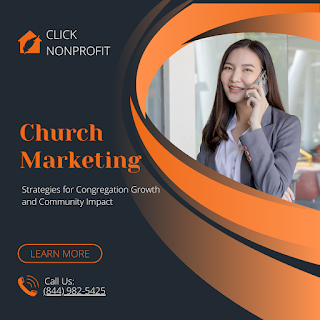Spreading Faith and Community: Effective Church Marketing Strategies
In today's rapidly changing world, effective church marketing is no longer a luxury but a necessity. Churches, just like any other organization, need to reach their audience, engage their community, and grow their congregation. The good news is that there are numerous strategies and tactics available to help churches achieve these goals. So, explore some key concepts and strategies for successful church marketing with us!
1. Know Your Audience:
One of the fundamental principles of marketing is understanding your audience. In the context of church marketing, this means getting to know your congregation and your community. What are their needs, interests, and concerns? By understanding your audience, you can tailor your messages and outreach efforts to resonate with them.
2. Establish a Strong Online Presence:
In the digital age, an online presence is crucial for any organization, including churches. Your church website should be user-friendly and regularly updated. It should provide information about your services, events, and community outreach programs. Additionally, maintain active social media profiles to engage with your congregation and reach out to potential new members.
3. Content is Key:
Create and share valuable content that aligns with your church's mission and values. Blog posts, videos, podcasts, and social media posts can be used to convey your message, share stories, and provide spiritual guidance. Valuable content can also position your church as a source of inspiration and support.
4. Email Marketing:
Maintain an email list to keep in touch with your congregation. Regular newsletters, event invitations, and inspirational content can help nurture relationships with your members and keep them informed about church activities.
5. Engage with Your Community:
Churches play a vital role in their communities. Engage with local businesses, schools, and organizations. Collaborate on community service projects, charity events, and local initiatives to show your church's commitment to making a positive impact.
6. Events and Outreach:
Host a variety of events and outreach programs that welcome newcomers and engage your congregation. Consider special events, seminars, workshops, and community service projects. Encourage members to invite friends and family to these events.
7. Use Online Advertising:
Leverage online advertising platforms like Google Ads and social media advertising to reach a broader audience. With precise targeting, you can promote your church to people in your local area who are actively searching for spiritual guidance or community involvement.
8. Testimonials and Reviews:
Encourage your members to share their positive experiences and reviews on platforms like Google, Facebook, and other relevant websites. Positive reviews and testimonials from real people can make a significant impact on newcomers.
9. Regularly Measure and Adjust:
To ensure your church marketing efforts are effective, regularly measure your results. Utilize analytics tools to track the performance of your campaigns. Adjust your strategies based on data to maximize effectiveness.
Conclusion:
Church marketing is about sharing your faith, your community, and your values with the world. It's about inviting and welcoming people into a community where they can find support, inspiration, and spiritual growth. By implementing effective marketing strategies, your church can reach new heights in terms of congregation growth and community impact.



Comments
Post a Comment